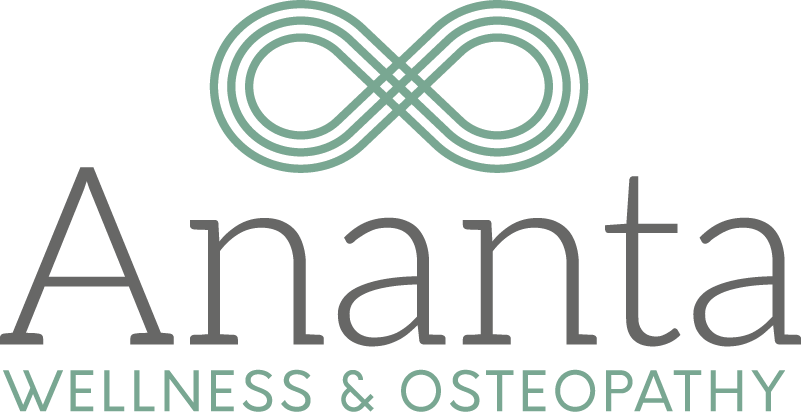In today’s fast-paced society, many individuals find themselves struggling with various digestive issues. Whether it’s bloating and gas to acid reflux and irritable bowel syndrome (IBS), these conditions can impact one’s quality of life. Amidst these difficulties, holistic approaches like osteopathy offer promising solutions. Osteopathy has shown promising results in improving digestive health. In this comprehensive guide, we will delve into the world of osteopathy; its principles, techniques, and practical applications, and explore how it can help with digestive issues.
Understanding Osteopathy: A Brief Overview
Osteopathy is based on the belief that the body has the inherent ability to heal itself when its various systems are in balance. Osteopathic practitioners work to restore this balance through multiple modalities, targeting specific areas of the body to relieve pain and promote overall wellness.
The Principles of Osteopathy
At the heart of osteopathy lie four fundamental principles:
- The body is a unified and interconnected entity.
- The body has a natural ability to self-heal and self-regulate.
- The structure and function of the body are interrelated.
- Treatment should focus on the whole person, rather than just the symptoms.
These principles form the foundation of osteopathy and guide the practice of osteopathic practitioners worldwide.
Osteopathic treatment may include a variety of techniques such as joint and visceral manipulation, myofascial release, and cranio-sacral technique. Osteopathic practitioners believe that by restoring mobility and alignment to the body, they can help alleviate pain and improve overall function.
The Connection Between Osteopathy and Digestion
The digestive system is a set of organs that work together to break down food and absorb nutrients. Any disruption in this system can lead to digestive issues. Osteopathy recognizes the interrelationship between the visceral system and its surrounding structures, and how it can affect the function of the digestive system. By addressing imbalances and relieving tension in the body, osteopathy can help with digestive issues as it optimizes digestion and promotes overall gastrointestinal health.
How Osteopathy Interacts with Digestive Health
Osteopathic practitioners work to restore balance, mobility, and circulation in the visceral system and its surrounding structures which can decrease symptoms and improve digestive function. In doing so, they use a holistic approach to digestive health by focusing on the body as a whole. By addressing any structural, visceral, circulatory, and nervous imbalances that may be affecting the digestive organs, osteopathy aims to promote ideal digestion and alleviate discomfort.
In addition to addressing physical imbalances, osteopathy also considers the impact of stress and emotional well-being on digestive health. Stress can significantly affect digestion by altering gut motility and increasing inflammation in the digestive tract. Osteopathic techniques aim to reduce stress levels and promote relaxation, which can have a positive impact on digestive function.
Common Digestive Issues Addressed by Osteopathy
Osteopathy has been found to be effective in addressing certain digestive issues. It approaches digestive issues by considering the holistic well-being of the individual, focusing on not just the symptoms but also the root causes.
Let’s take a closer look at two common conditions: irritable bowel syndrome (IBS) and gastroesophageal reflux disease (GERD).
Irritable Bowel Syndrome (IBS)
IBS is a common gastrointestinal disorder characterized by symptoms such as abdominal pain, bloating, diarrhea, and constipation. Osteopathic practitioners use gentle visceral manipulation to address any tension in the abdomen with an aim to reduce pain and discomfort, allowing individuals with IBS to experience improved digestion and a better quality of life.
Osteopathic treatment for IBS may also involve dietary recommendations, stress management techniques, and lifestyle modifications to support long-term digestive health.
Gastroesophageal Reflux Disease (GERD)
GERD is a chronic condition in which stomach acid flows back into the esophagus, causing heartburn and discomfort. Osteopathy can help manage GERD symptoms by re-aligning the spine and relieving tension in the diaphragm. By addressing these issues, osteopathic practitioners aim to reduce the frequency and severity of acid reflux episodes, providing relief to individuals suffering from GERD.
In addition to hands-on techniques, osteopathic treatment for GERD may also involve postural adjustments, breathing exercises, and education on lifestyle factors that can exacerbate acid reflux.
The Osteopathic Approach to Digestive Health
Osteopathy can help with digestive issues. When it comes to addressing digestive issues, osteopathy takes a multidimensional approach that extends beyond symptom management.
Understanding the intricate relationship between the musculoskeletal system and digestive health is fundamental to the osteopathic approach. Osteopathic practitioners are trained to find restrictions or misalignments in the body that can impact the function of the digestive organs. Osteopathic treatment will focus on specific areas of the body to improve nerve function, blood flow, and overall mobility, thus enhancing digestive processes.
Osteopathic Treatment for Digestive Issues
During an osteopathy session, an osteopathic practitioner will use gentle, hands-on techniques to manipulate the body’s tissues, thereby improving mobility, reducing pain, and restoring balance. Treatment will likely address musculoskeletal imbalances that may be contributing to digestive problems and improving the function of the vagus nerve, a key player in the gut-brain axis. By improving the communication between the brain and the digestive system, osteopathic treatment can help regulate digestion, reduce inflammation, and promote overall gut health.
The Holistic Approach of Osteopathy
Osteopathy takes a holistic approach to healing, acknowledging the interrelationships of the body’s various systems. Rather than addressing symptoms in isolation, osteopathic practitioners aim to understand the underlying causes of digestive issues and develop personalized treatment plans that promote overall health and well-being. This may include lifestyle modifications, dietary changes, stress management techniques, and targeted osteopathic treatments.
By considering the individual as a whole and not just focusing on presenting symptoms, osteopathic practitioners can uncover imbalances or dysfunctions that may be contributing to digestive discomfort. Through a combination of hands-on treatments, patient education, and collaborative care, osteopathy offers a comprehensive and integrative approach to improving digestive health.
Conclusion
In conclusion, osteopathy offers a comprehensive and holistic approach to managing digestive dysfunction. By addressing imbalances and promoting overall wellness, osteopathy aims to optimize digestion and improve gastrointestinal health. Whether you’re struggling with IBS, GERD, or other digestive issues, consulting with an osteopathic practitioner may provide you with the relief and support you need to regain control of your digestive well-being.
Sources:
Licciardone JC, et al. (2013). Osteopathic manipulative treatment for chronic low back pain: A randomized controlled trial. Spine. doi:10.1097/BRS.0b013e31827a8e0c
Hundscheid HW, et al. (2014). Effects of osteopathic treatment on gastrointestinal function in patients with functional bowel disorders. Journal of Gastrointestinal Surgery. doi:10.1007/s11605-013-2389-1
Smith L, et al. (2016). Osteopathic manipulative treatment for nonspecific low back pain: A systematic review and meta-analysis. BMC Musculoskeletal Disorders. doi:10.1186/s12891-016-1444-2
Smith L, et al. (2013). The effects of osteopathic treatment on psychosocial factors in people with persistent pain: A systematic review. International Journal of Osteopathic Medicine. doi:10.1016/j.ijosm.2013.05.003
Chaitow L. (2004). Cranial manipulation: Theory and practice. Churchill Livingstone.
van Tilburg MA, et al. (2015). Complementary and alternative medicine use and cost in functional bowel disorders: A six month prospective study in a large HMO. BMC Complementary and Alternative Medicine. doi:10.1186/s12906-015-0547-3

